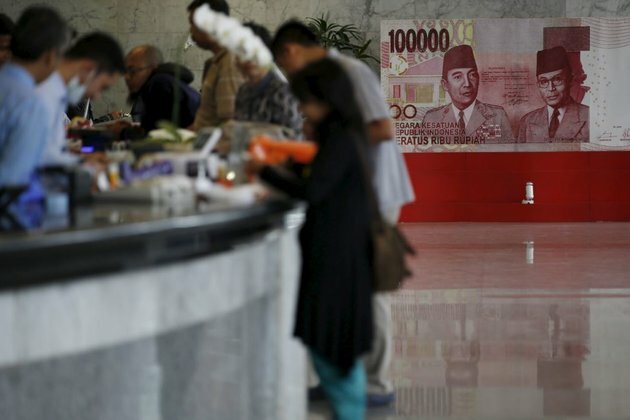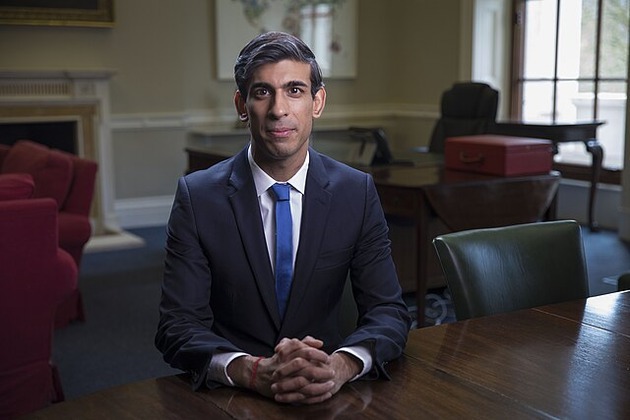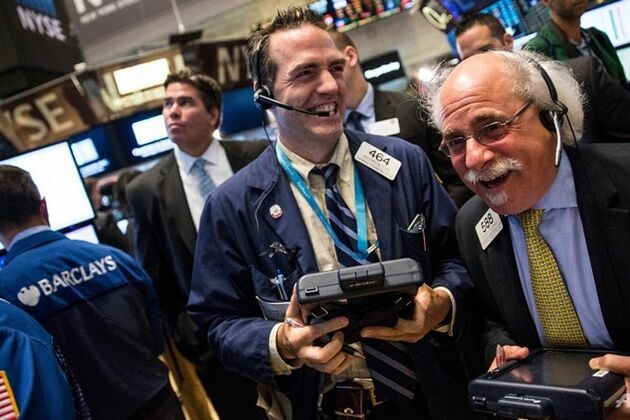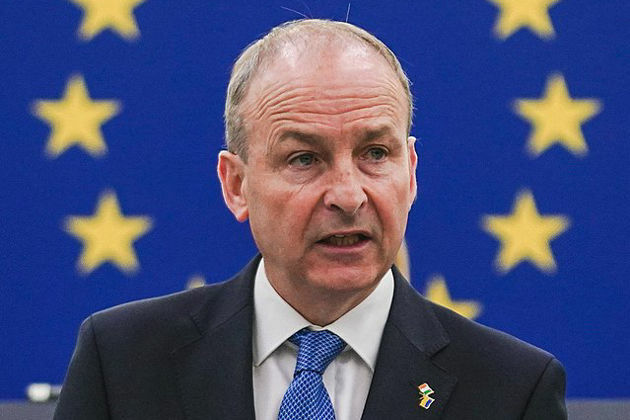Indonesia Battles Currency Woes
VOA
11 Sep 2018, 17:35 GMT+10

JAKARTA - Policymakers in Indonesia are grappling to deal with a weakened currency, the rupiah, which was valued at just 14,930 per U.S. dollar last week - its lowest point since the 1998 Asian financial crisis. But unlike 20 years ago, when economic turmoil led to major political upheaval in Indonesia, most observers say that Southeast Asia's largest economy is now far better positioned to endure a poorly performing currency.
The United States Federal Reserve's planned interest rate hikes have impacted emerging markets worldwide as investors sell assets in countries such as Indonesia in favor of American ones. The Argentine peso and Turkish lira both crashed in late August, crises that sent major shockwaves across developing economies. President Donald Trump's trade war with Beijing has also seen a devaluation of the Chinese yuan.
FILE - A clerk counts Chinese yuan and U.S. dollar banknotes at a branch of Bank of China in Taiyuan, China, Jan. 4, 2016.
These external factors have badly hit the Indonesian rupiah, already one of the weakest currencies in Asia. According to Bloomberg, the rupiah has lost around 9 percent of its value against the greenback during 2018. Like Turkey and Argentina, Indonesia also has a so-called "twin" deficit, meaning it is running both fiscal and current account deficits.
"Indonesia obviously is one of the frontline currencies alongside the Indian rupee and the Philippine peso, these are the three currencies most battered among the regional pack... in the latest turmoil," said Prakash Sakpal, an economist from ING in Singapore.
Stronger 20 years on
In the late 1990s, the collapse of the rupiah exacerbated a severe economic crisis, which led to the fall of Indonesia's longtime dictator Suharto.
"We know what we face with the rupiah is a really, really important problem," the head of Research at the Jakarta-based brokerage and investment management firm Ekuator, David Setyanto, told VOA. "But if you compare with Turkey or Argentina, we are not the same with them because our fundamental economics are much stronger than these two countries."
Dr. Tommy Soesmanto, an economics lecturer at Griffith University, told VOA that "Indonesians should not be overly concerned with the current situation," as the economy is in a far stronger position than in 1998. During the Asian Financial Crisis, the rupiah fell from 3000 against the US dollar to 15,000 - a depreciation of some 500 percent from which it never recovered, hovering at around 10,000 per dollar in subsequent years.
Indonesia's credit rating is now Triple B as opposed to 1998 when it was "considered junk", Soesmanto said, while the country now has net capital inflow compared with "severe" capital outflow in 1998. Bank Indonesia holds foreign reserves worth some $118 billion compared with just $24 billion back then, allowing it greater leverage to finance debts and imports.
Charu Chanana, Deputy Head of Asia Research at Continuum Economics in Singapore, agreed. "We believe Indonesia is much stronger today fundamentally when compared to 1998," she wrote in an email. "However, as external headwinds persist, we believe Indonesia's currency will remain in the firing line due to a weak external position and high foreign exposure in the stock and bond markets."
FILE - A man walks past screen at the Indonesia Stock Exchange building in Jakarta, Indonesia, Sept. 6, 2018.
"I think it's a little bit overblown," said Sakpal of ING when asked about the severity of the currency crisis, noting that "economic fundamentals for most of the regional economies are still solid."
"In Indonesia, growth has accelerated in the second quarter to 5.3 percent, which was the fastest in many quarters... all the recent turmoil is driven by external factors," he said.
Unite for the rupiah
Bank Indonesia, the central bank, has responded aggressively to the latest currency problems by raising interest rates four times since May. For months it has also sold foreign currency and bought sovereign bonds in a bid to stabilize the currency.
The government, meanwhile, has now imposed higher import taxes of up to 10 percent on some 1000 consumer goods, including cosmetics and luxury cars.
FILE - Indonesia's Finance Minister Sri Mulyani Indrawati listens to the opening remarks at the start of the 8th ASEAN Finance Ministers' Meetings on Friday, April 6, 2018, in Singapore.
"This is a good chance for local producers to penetrate our own domestic market that is usually filled with imported goods," Indonesia's Finance Minister Sri Mulyani Indrawati said last week.
The weak rupiah is likely to hit Indonesia's manufacturing sector hardest, and accordingly, the government has imposed lower tax hikes of 2.5 percent on imported raw materials. The energy and resources ministry also announced it would delay $25 billion worth of power projects, aimed at producing an additional 35 gigawatts of electricity, which is expected to save $8 to $10 billion in import costs.
FILE - Indonesian President Joko 'Jokowi' Widodo, center, holds the Asian Games torch as he runs during an independence day ceremony at Merdeka Palace in Jakarta, Indonesia, Aug. 17, 2018.
"We can come together for the success of the #AsianGames2018," read a Facebook post from the Finance Ministry last week, accompanied by infographics urging Indonesians to buy local products, reduce their consumption of imports, change U.S. dollars for rupiah, travel within Indonesia and invest locally. "We can also #BersatuUntukRupiah [unite for the rupiah]."
 Share
Share
 Tweet
Tweet
 Share
Share
 Flip
Flip
 Email
Email
Watch latest videos
Subscribe and Follow
Get a daily dose of Dublin News news through our daily email, its complimentary and keeps you fully up to date with world and business news as well.
News RELEASES
Publish news of your business, community or sports group, personnel appointments, major event and more by submitting a news release to Dublin News.
More InformationBusiness
SectionMusk’s X loses CEO Linda Yaccarino amid AI backlash, ad woes
BASTROP, Texas: In a surprising turn at Elon Musk's X platform, CEO Linda Yaccarino announced she is stepping down, just months after...
Ex-UK PM Sunak takes advisory role at Goldman Sachs
NEW YORK CITY, New York: Former British prime minister Rishi Sunak will return to Goldman Sachs in an advisory role, the Wall Street...
Gold ETF inflows hit 5-year high as tariffs drive safe-haven bets
LONDON, U.K.: Physically backed gold exchange-traded funds recorded their most significant semi-annual inflow since the first half...
PwC: Copper shortages may disrupt 32 percent of chip output by 2035
AMSTERDAM, Netherlands: Some 32 percent of global semiconductor production could face climate change-related copper supply disruptions...
U.S. stocks recover after Trump-tariffs-induced slump
NEW YORK, New York - U.S. stocks rebounded Tuesday with all the major indices gaining ground. Markets in the UK, Europe and Canada...
Stocks slide as Trump unveils 25% tariffs on Japan, S. Korea
NEW YORK CITY, New York: Financial markets kicked off the week on a cautious note as President Donald Trump rolled out a fresh round...
Europe
SectionIrish Rail faces 26,000-euro bill after graffiti spree by man
DUBLIN, Ireland: Irish Rail incurred over 26,000 euros in damages due to a series of graffiti incidents carried out by a 24-year-old...
Warsaw responds to migration pressure with new border controls
SLUBICE, Poland: Poland reinstated border controls with Germany and Lithuania on July 7, following Germany's earlier reintroduction...
Ireland’s PM ‘hopeful’ of EU-US tariff deal before July 9 deadline
DUBLIN, Ireland: Taoiseach Micheál Martin has expressed cautious optimism that the European Union and the United States can strike...
Fans perform WWII-era Fascist salute at Marko Perković’s mega concert
ZAGREB, Croatia: A massive concert by popular Croatian singer Marko Perković, known by his stage name Thompson, has drawn widespread...
Ireland’s citizens undeterred as Europe swelters in record heat
DUBLIN, Ireland: Despite extreme heat gripping much of mainland Europe, Irish holidaymakers are pressing ahead with their travel plans,...
Beijing hits back at EU with medical device import curbs
HONG KONG: China has fired back at the European Union in an escalating trade dispute by imposing new restrictions on medical device...













